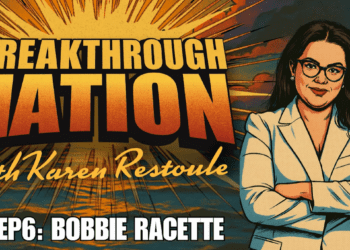Writing in the Globe and Mail, Macdonald-Laurier Institute Managing Director Brian Lee Crowley argues that Saskatchewan Premier Brad Wall is helping to make his province the most dynamic in Canada.
Natural resources like oil and gas, balanced budgets and food production are combining with the province’s political leadership to Saskatchewan’s success.
“At a time when global population growth means more food will be eaten in the next 50 years than in the whole rest of human history, Saskatchewan is poised to be a world food superpower and to become rich doing so”, Crowley writes.
By Brian Lee Crowley, Dec. 26, 2014
For the first third of the twentieth century which was the third largest province in Canada by population after Ontario and Quebec? BC? No. Alberta? No. If you correctly guessed Saskatchewan, you’ll probably also know that the province is again setting the pace as the place to be in Canada. If when you think Saskatchewan you still envision dustbowls and the sound of paint peeling off ancient grain elevators you probably still have rabbit ears on your black and white television. Brad Wall, the best premier in the country, is leading the most dynamic province in the Dominion.
When my mum was growing up in Regina in the Thirties, the farm sector was so devastated food aid used to come in by train from the rest of the country. In 2013, net farm income in Saskatchewan was $5.5 billion, more than twice the year before and double Alberta’s. At a time when global population growth means more food will be eaten in the next 50 years than in the whole rest of human history, Saskatchewan is poised to be a world food superpower and to become rich doing so. Rapidly expanding lentil exports to south Asia are a sign of things to come.
Natural resources also underpin the province’s renaissance. Oil and gas are part of the picture. To read the media reports you’d think the famous Bakken oil formation is entirely in North Dakota, but about a third of it is in Saskatchewan. The oilsands extend into the province as well, and Husky operates a big heavy oil and bitumen upgrader in Lloydminster.
But that’s not the biggest energy story in the province, which is one of the world’ greatest uranium producers thanks to super-rich ore deposits. A single CANDU fuel bundle produces as much electricity as 1800 barrels of oil and Saskatchewan exports more energy (in the form of uranium) than is contained in Canada’s entire net exports of oil and gas.
True, uranium is cheap – even after oil’s recent tumble, on an energy-content basis it sells at a tiny fraction of oil’s price. Nor does it emit greenhouse gases. There are over 400 reactors operating worldwide and 60 more are on the way. As technology improves and we seek more non-carbon based fuels for electrical generation, Saskatchewan can and should be the world’s preferred supplier.
We could talk too about potash and forestry, but you get the picture. And did I mention that largely because of the natural resource industry, Saskatoon is now the second largest metal fabrication centre in Canada? Visit the city and you’ll immediately recognise the energy. It’s the same vibe as Calgary in the 1970s. It’s also the home to one of the most successful urban Aboriginal reserves in the country, with many more coming around the province. Other communities, like Estevan, are booming too. Immigration’s up, unemployment low.
Political leadership has played a big role, and not just under Brad Wall and the Saskatchewan Party. In fact Saskatchewan under the NDP was the first government in the country to recognise in the 1990s that it was on an unsustainable path of borrowing and spending. Under Premiers Romanow and Calvert the province changed course, cutting painfully and vigorously, but unleashing significant growth in return. They balanced the budget and eventually were able to join the neighbours in BC and Alberta in cutting taxes.
Brad Wall inherited this sound base and has built on it, including recently by bringing Saskatchewan into the New West Partnership, linking it with its two westernmost neighbours in a free-trade bloc that is putting the rest of the provinces to shame. And he’s shown courageous national leadership, calling out Ontario and Quebec for trying to create new barriers to the construction of national infrastructure like pipelines.
Wall’s not the only Saskatchewan politician cutting a major figure on the national stage. Newly elected National Chief of the Assembly of First Nations, Perry Bellegarde, reached that post from his base as the head of the Federation of Saskatchewan Indian Nations. And while there are lots of frictions, Saskatchewan’s success in the natural resource economy couldn’t have occurred without the constructive engagement of both Aboriginal and non-Aboriginal parties. The relationship is perhaps the strongest of any province in the country. It has certainly been helped by the several successful Aboriginal development corporations which have proven so effective at promoting First Nations’ economic engagement.
Saskatchewan used to be known as “Tomorrow Country” because the hardscrabble present could only be made bearable by the thought that the future would bring something better. There is nothing guaranteed about Saskatchewan’s current success, but for now, tomorrow has finally arrived.
Brian Lee Crowley (twitter.com/brianleecrowley) is the Managing Director of the Macdonald-Laurier Institute, an independent non-partisan public policy think tank in Ottawa: www.macdonaldlaurier.ca.





